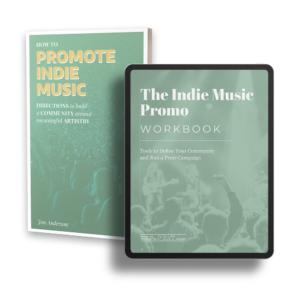I frequently feel like I don’t know as much as I should.
Case in point: I was talking to a friend about Spotify promotion and kind of acting the part of the expert.
Me: “Well you know, I haven’t gotten great results with Spotify’s native ads, and don’t you think Spotify should make more fan data available so campaigns can be more effective, because blah da blah blah…”
Him after about five minutes: “Yeah have you heard about Marquee? I think that’s a small step in the right direction.”
Me: “…No.”
It turns out that Marquee is a potentially useful feature that lets you show a pop-up to somewhat-segmented groups of users when they open the Spotify app.
It also turns out that I felt pretty dumb for not knowing that.
I mean, I’ve built Two Story Media on the premise that I know a lot about marketing music. I was offering my friend advice on release strategies on the premise that I know a lot about marketing music.
But in reality, there’s a lot that I don’t know about marketing music.
Thinking about this led me to two conclusions:
1. Humility is helpful.
I read a quote recently that said something to the effect of, “People who really are experts will tell you that there’s a lot they don’t know. People who readily claim to be experts usually aren’t.” (I’m paraphrasing because I can’t for the life of me remember where I read this.)
As I write this post admitting to you that there’s a lot I don’t know, I’m very tempted to pat myself on the back for my humility. But the truth is that, most of the time, I exert lots of effort in the opposite direction, trying to present myself as someone who knows everything.
You can only learn if you admit that you have learning to do. I want to be better at this.
2. You can’t be an expert at something without actually doing it.
Just like studying a language won’t make you fluent; you’ve got to actually speak it.
Look, trying to stay up-to-date with music marketing is like trying to stay up-to-date with the internet. I’m subscribed to what feels like a thousand music marketing newsletters and YouTube channels – keeping up with them is an endless task.
There are new platforms introduced all the time. Some fade fast (hello Clubhouse… goodbye, Clubhouse), others stick around. There are new features being added all the time (Marquee!). Ad manager settings are constantly changing. New data is made available; old data is taken away.
The best way to be good at this is not to try to ingest every bit of information. It’s to just keep making and marketing your music.
For example, if you use Instagram consistently, you’ll know when the platform adds new features. And you’ll find out pretty quickly how you can best use them.
But if you do Instagram promo and then pause for eight months until your next song is out, the next time you jump onto the platform, you’ll have to catch up with all of the new features that have been added in your absence.
End of this thought: You can’t stay up to date with everything.
And you shouldn’t try to. But you should pick the platforms that work for you and engage with them consistently. That’ll lead to expertise more quickly than trying to learn everything from everywhere all the time.
There’s a balance here, obviously; education can have a ton of value. But I think it’s probably better to err on the side of action than to let yourself get overwhelmed by how much you have to learn.
I guess what I’m trying to say is that, if you’re an indie musician, it’s okay not to know stuff about music marketing. It’s not okay to stop making music.

